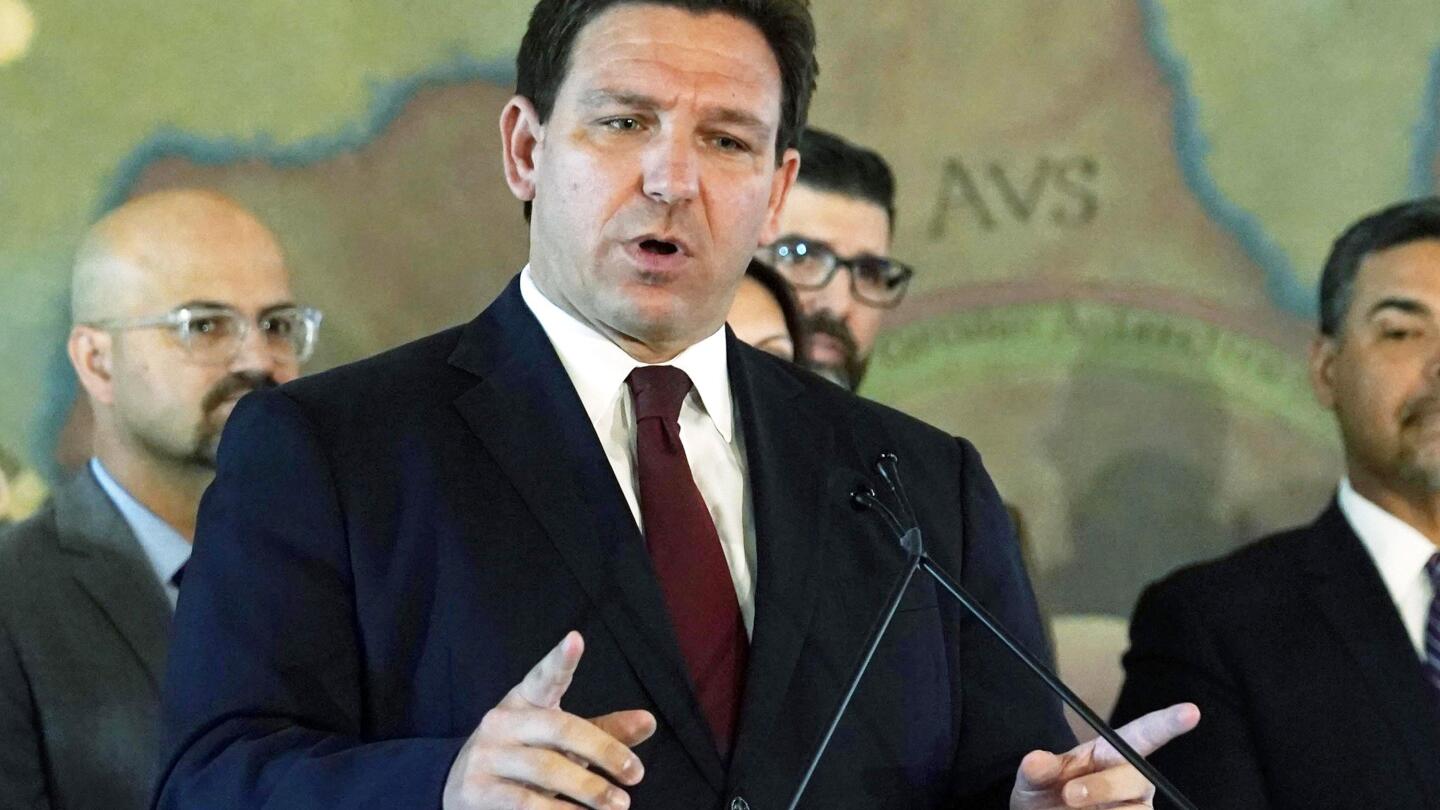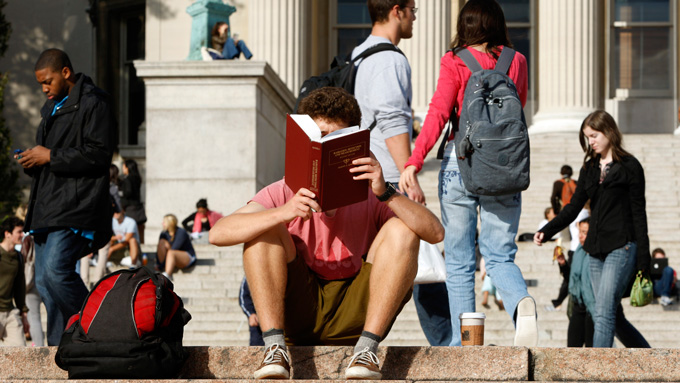Can you explain what those ‘good reasons’ to investigate university culture along political lines? What might those reasons be?
Yes, I certainly can, and I don't even need to use my imagination.
False. The bill, which DeSantis signed into law a year ago, requires public universities to conduct annual surveys assessing the extent to which competing viewpoints are presented and students and employees “feel free to express their beliefs” on campuses.

apnews.com
(note that this bill is a year old and news of it was revived)
EDIT 2: Even salon.com--
salon.com for god's sake--revised its false headline that the bill requires people to 'register' their political view with the state, because that characterisation is so egregiously false.
The bill requires the State Board of Education and The Board of Governors to create a survey to be administered annually by the 28 schools comprising the
Florida College System and the 12 public universities included in the
State University System that “considers the extent to which competing ideas and perspectives are presented” and how free members of the college communities feel “to express their beliefs and viewpoints.”
So, for example, there is already evidence that conservative students self-censor their views more than liberal students. But, the only way to know if this is a problem in the Florida system is to survey the Florida system.
“Is Academe Awash in Liberal Bias?” This is one of many recent headlines trying to grapple with a question that we’ve been debating for decades: are colleges and universities dominated by liberals? Over the past few years, charges that colleges and universities are “about Radical Left...

www.aei.org
The Knight Foundation’s 2019
survey of over 4,400 undergraduates on the state of collegiate student expression shed more light on these troubling trends: 68% felt silenced because “their campus climate precludes students from expressing their true opinions because their classmates might find them offensive.”
And most recently the aforementioned FIRE
free speech survey of almost 20,000 college students confirmed that self-censorship on campuses is prevalent: Six out of ten college students say they have kept quiet due to fear of how others would respond. Breaking this down further, the largest group on campus which self-censors is “strong Republicans” (73%) and the lowest is “strong Democrats” (52%). These findings are in many ways a continuation and deepening of
trends from 2016 and 2017 when conservative students reported self-censoring more than their liberal counterparts.
Student willingness to use violence and engage in behavior to explicitly stop speech is another area where the FIRE report uncovers disturbing trends. Those identifying as extremely liberal said violence to stop a speech or event from occurring on campus was “always” or “sometimes” acceptable at a rate double than of students identifying as extremely conservative: 13% to 6%. More than a quarter of extremely liberal respondents said it is “rarely” acceptable, compared to 8% of extremely conservative respondents.
One of the most interesting findings in terms of political bias in the FIRE report comes from comparing conservative student ratings of institutions with liberal student ratings. What emerged is that even when conservatives rank a predominantly liberal institution highly in terms of being open to speech, they find themselves self-censoring. University of Chicago was ranked highly by both Liberals (1st) and Conservatives (3rd). Overall less than half of the students report self-censoring (44%).
But when broken down by political leaning 82% of Conservatives report holding back their views compared to 53% of Moderates and 40% of Liberals. As one student at Chicago noted: “[I am] afraid to disagree with certain liberal talking points because even if I do not agree with the conservative side either I feel like I will be rejected for not being ‘woke’ enough.”
Beyond self-censorship, in class and in coursework, I would also say that the administration may impose requirements on to students that reflect the political beliefs of the administration.
I assume most people would be aghast if a public university decided to send all students a weekly Christian devotional. Yet universities think nothing of making compulsory courses unrelated to the student's study, courses about white privilege and microaggressions, for example. Some universities withhold your results until you complete such courses.
EDIT: At my current university, there are two short courses, in addition to what I'm actually studying, that I was required to take. An academic plagiarism course (which is fair, that is relevant to whatever you are studying) and a course about consent, illustrated with a range of differently-coloured and sexually-orientated cartoon characters, built on the idea that some rapists don't know when they're raping people, and a consent course will change their minds about raping people.
Note: it is my understanding that universities in the US enjoy greater academic freedom
compared with Australian universities. Indeed, academic freedom, to go where the research/data/evidence leads you is a primary value in US universities. Or public ones anyway.
I'm sure you believe that, but it isn't true. Try being a psychologist who examines the relationship between ethnicity and IQ.


